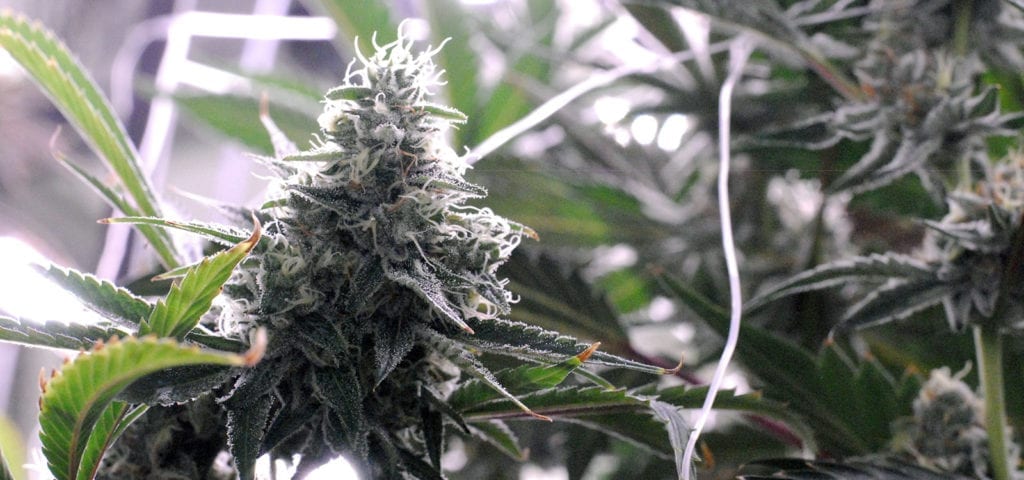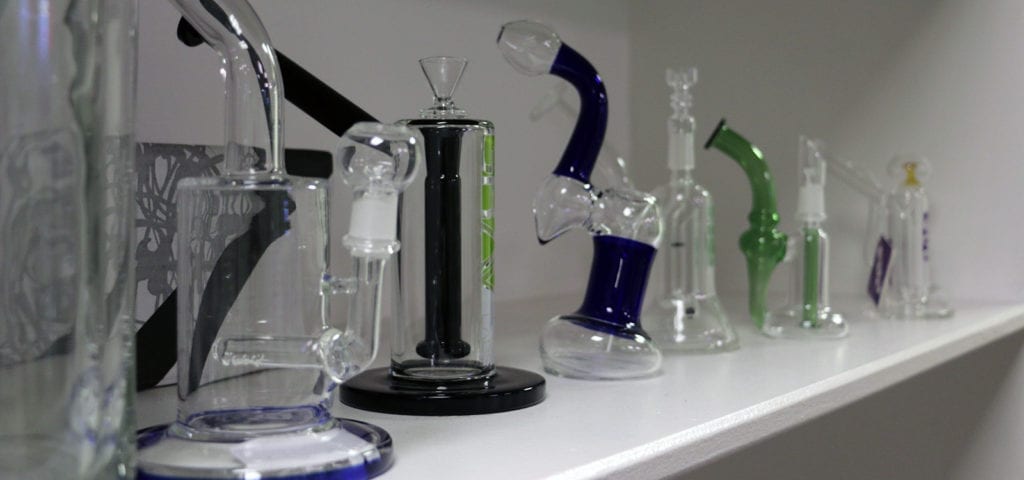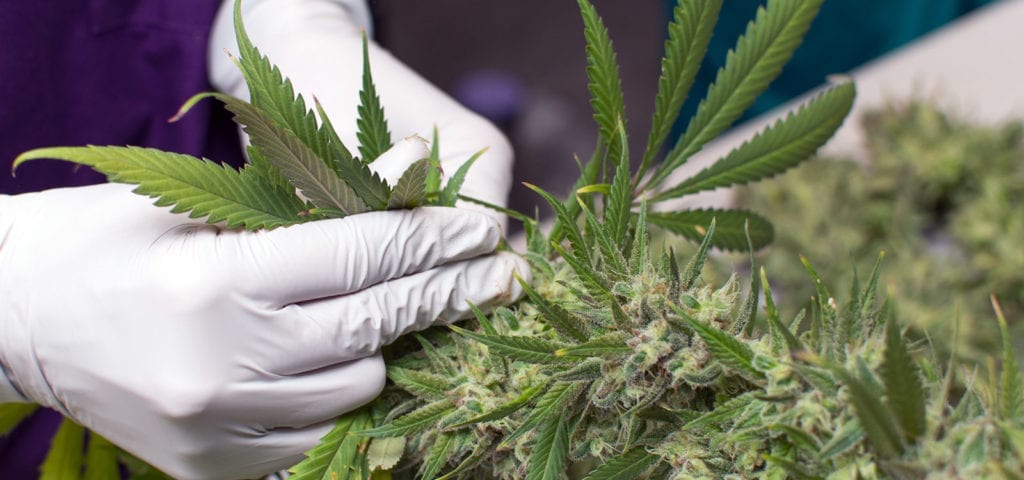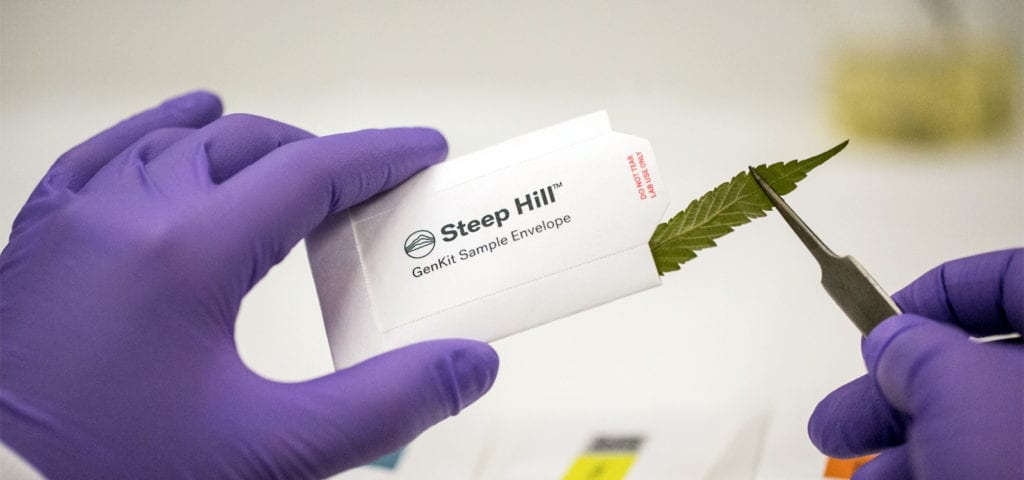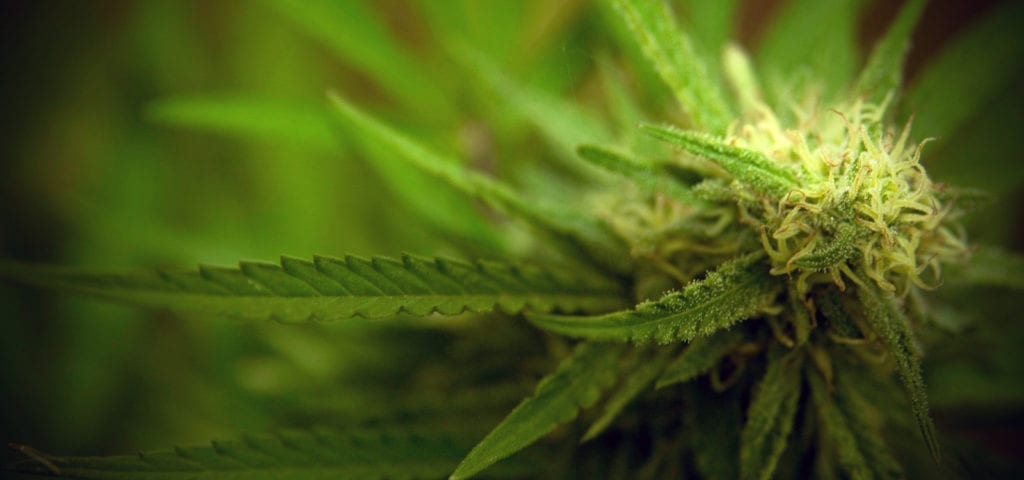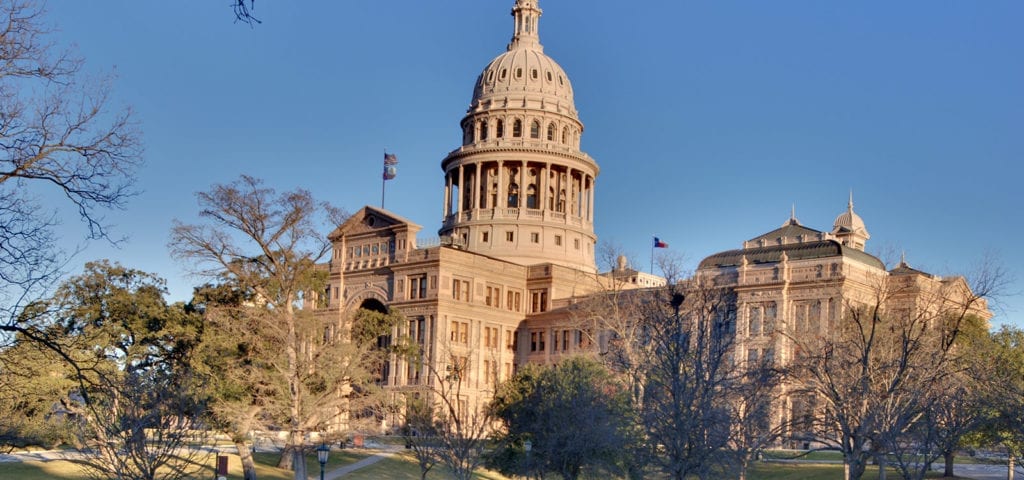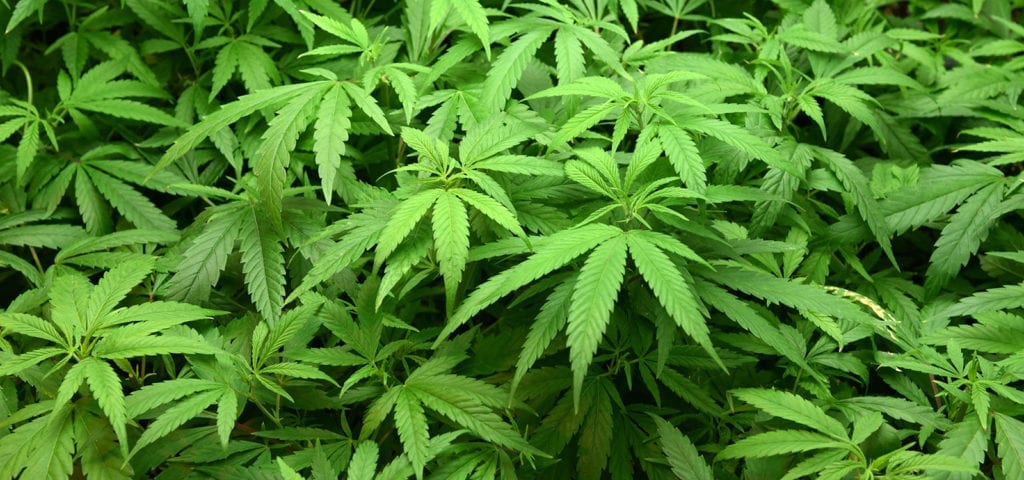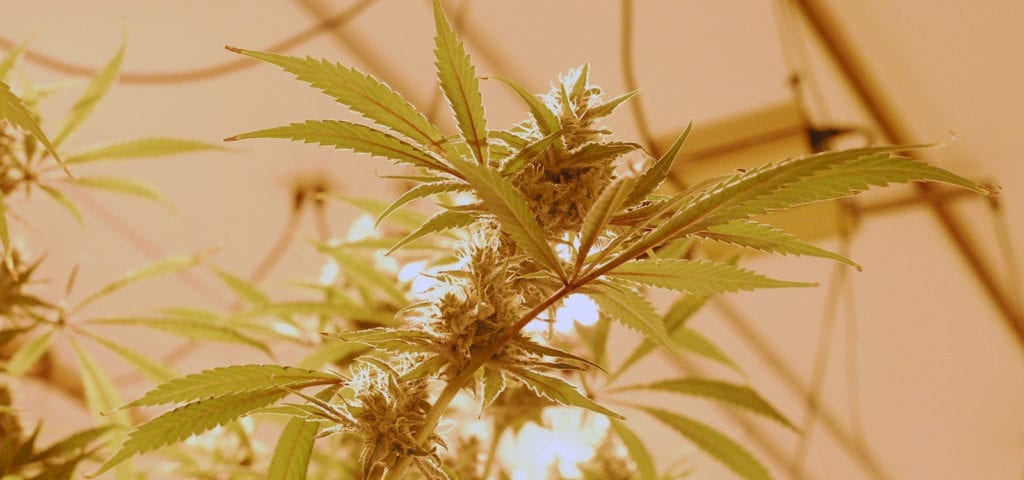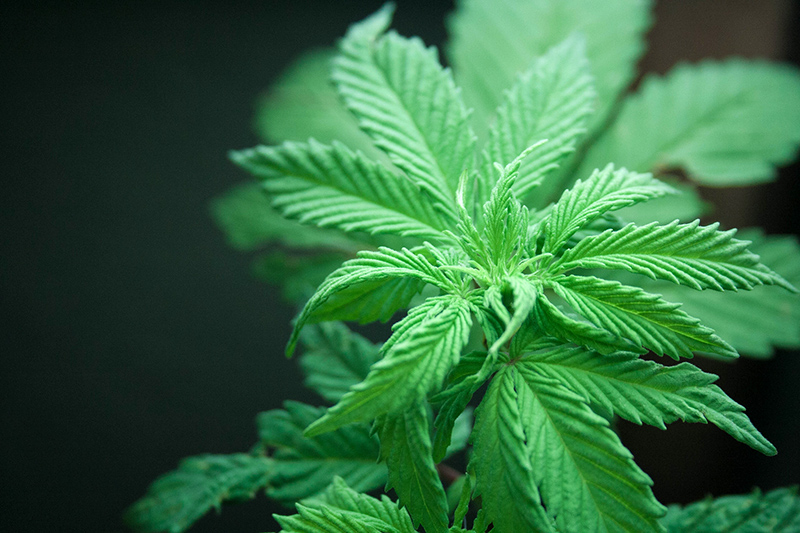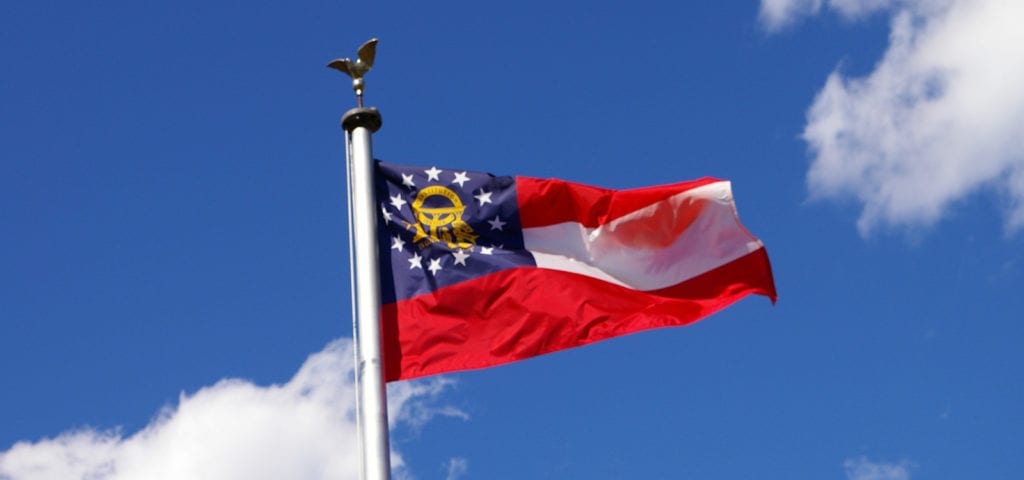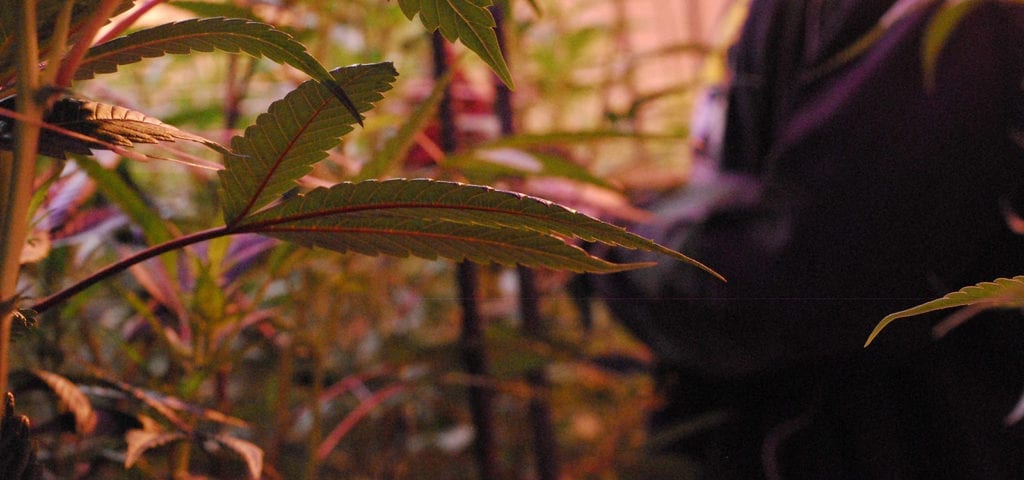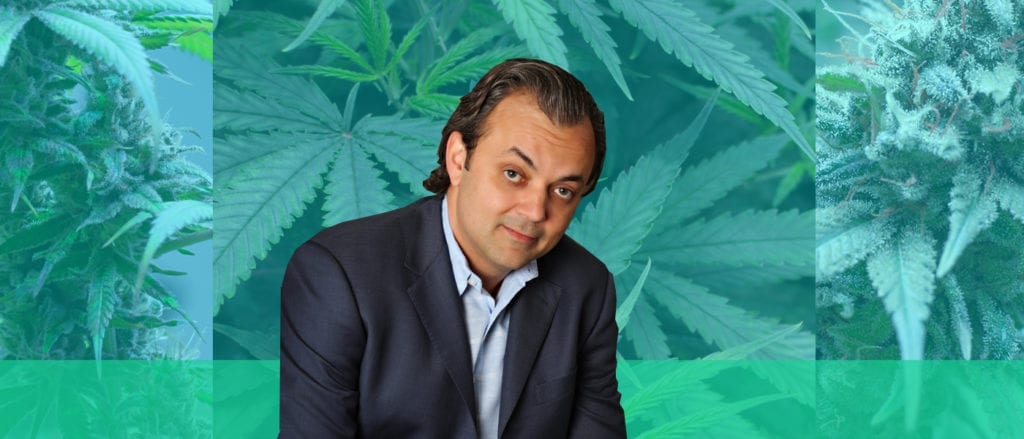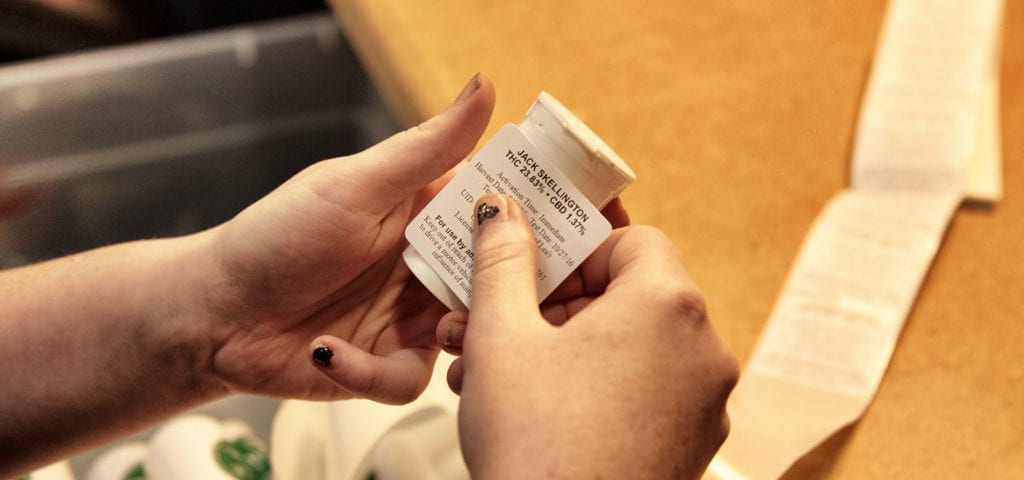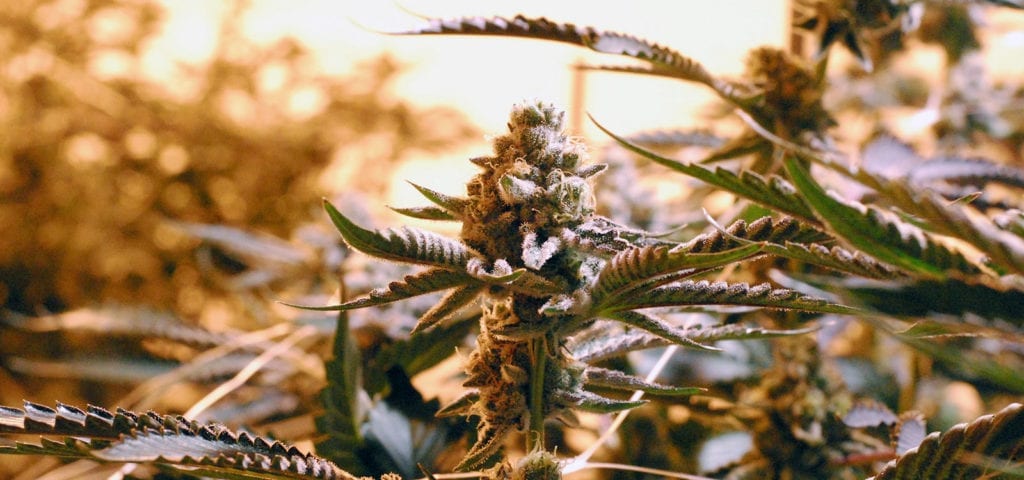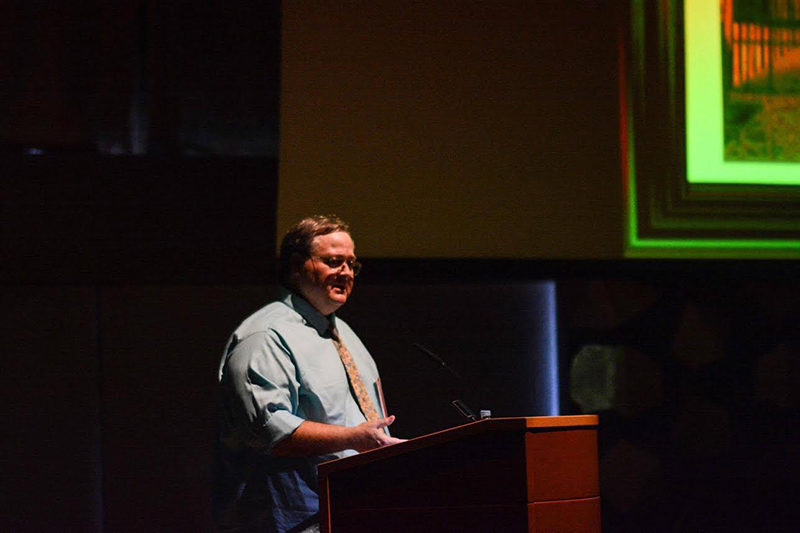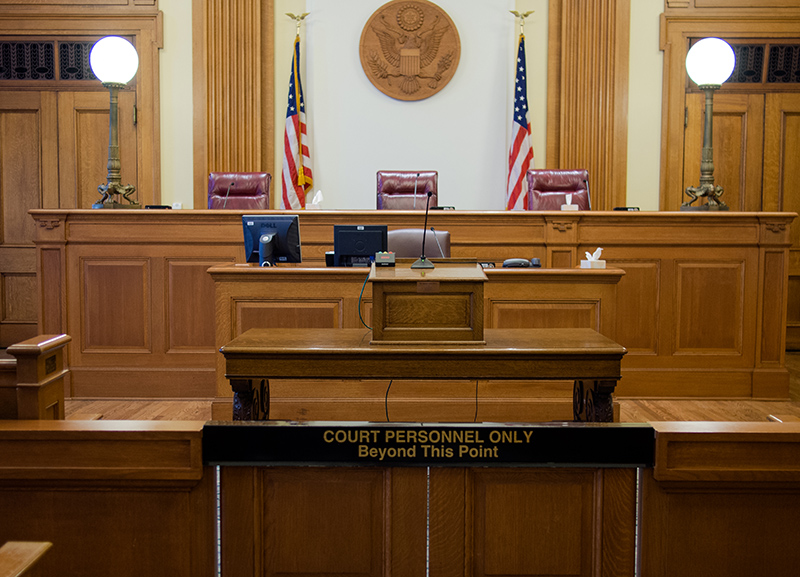Serge Chistov is the financial advisor for the Honest Marijuana Company, a Colorado-based cannabis cultivation group that prides itself on providing clean, premium cannabis products to the medical and recreational consumer markets.
In this episode of the Ganjapreneur.com Podcast, our host TG Branfalt and Serge discuss the importance of all-natural cannabis growing, what qualities Serge looked for in a company before getting involved in the cannabis industry, and — with Serge coming from a previous career in liquor and spirits imports — how he believes cannabis legalization will affect the alcohol industry. The two also discuss reusable, quality packaging options in the cannabis industry and much, much more!
You can listen to the podcast episode below, or keep scrolling down to read a full transcript of the interview.
Listen to the podcast:
Read the transcript:
TG Branfalt: Hey there, I’m TG Branfalt and you are listening to the Ganjapreneur.com podcast, the Ganjapreneur.com podcast gives us an opportunity to speak directly with entrepreneurs and experts who are working on the front lines of the industry to normalize cannabis through responsible business, education, and activism. As your host, I will do my best to try to bring you actionable information to help you plan, grow, and manage your cannabis business. Today I’m joined by Serge Chistov, he is the financial advisor for the Honest Marijuana Company. How you doing this morning, Serge?
Serge Chistov: I’m doing fantastic and thank you for having me.
TG Branfalt: Hey, man, it’s a pleasure. I’m excited to talk to you guys about some of your green products that you’re rolling out but before we get into that, I like to start with the background of the guest. So what’s your background? What did you do before getting involved in the industry?
Serge Chistov: I would say that a stockbroker by trade, financial advisor and consultant since early ’90s on Wall Street. I built and expanded an import company in the liquor and spirits business, wine and spirits business, from 2006 until now. And somewhere at the end of the 2008-2009, I started to look into the cannabis field as something that is exciting, brings a lot of very interesting and passionate people, and obviously something that is dear to me as a substance for many, many years. And that’s how I end up in the cannabis space.
TG Branfalt: And there’s a lot of discussion always about how cannabis is going to impact the alcohol industry. As somebody who worked in the alcohol industry, what are your thoughts on the relationship between the two businesses?
Serge Chistov: The relationship between the two businesses? If there is an impact of cannabis consumption on the liquor consumption, it’s not like cannabis was not a part of our culture for the last 50-60 years, so I do not believe that we are looking at this sizeable quantitative number that alcohol will be or wine will be reduced by when we’re gonna start buying pot in establishments specifically directed to sell pot versus buying it from the local guy based on availability and his presence in the area. Do you know what I mean?
TG Branfalt: Yeah.
Serge Chistov: So to me, I believe that one has lived with the other for quite some time and we already have seen their symbiosis. We’ve seen how much wine will sell, which I believe was approximately 90 billion dollars or 99 billion dollars a year, that was the number from last year. And by some of the conservative estimates, legalized cannabis can be approximately the size of the developed wine market. So by some guesstimates, we’re looking at the 80 to 100 billion dollar a year industry. So quite frankly, liquor industry will not get affected as much as the illegal black market trade. The only thing that is affected by the rapid legalization and the controlled legalization of cannabis is the cartels’ bottom line, and our ability and our access to the good quality verified products, that is what’s affected. In no means, I do believe that increased liberalization of cannabis use in the US will affect negatively the wine or alcohol industry.
TG Branfalt: So moving on a little bit, I want to talk to you about the Honest Marijuana Company, it’s vision. You guys refer to it as the road to pure, why is this important for you guys to have this road to pure?
Serge Chistov: That’s a great question, thank you for actually noticing that. The approach to road to pure is coming from realization that the more we’re learning about the plant the more fascinated we are by the ignorance of the masses. And us at the same token. When you smoke or consume cannabis for the last 20 or 35 years as I did in probably 4 different continents, now knowing more about subject, I wonder what else was I consuming while trying to engage in some cannabis consumption. When the pesticide testings and when the different grow techniques and some of the shortcuts became known to the industry of what the manufacturers are doing to maximize their bottom line, quite frankly it is a scary thought to know that for the last 30 years the only basis for you to acquire cannabis was the local availability. If you know what I mean?
TG Branfalt: Absolutely.
Serge Chistov: So today having an understanding what actually goes into the production, what are the different variations of the chemicals, and organic pesticides and non-organic pesticides. Organic nutrients and non-organic nutrients. Different types of soils, different water contaminants, etc, etc. You just start really wondering what did we have to endure to get so far? And this is just the basis, look at it. Let’s take a look at the delivery system. Today majority of the cannabis is being smoked. And no matter how you slice it and no matter what the public tells you about it’s safer to smoke cannabis than smoke cigarettes and it sounds good but in reality it is a total bullshit. Because smoking is a dangerous form of delivery regardless of what is it that you’re smoking because combustion. What causes the cannabis to actually enter your body? Nowhere in the manual for the human operation we have read somewhere that you should set up a huge bonfire and walk into it and start inhaling the smoke. This is just not good for you.
So road to pure means us learning about the plant and finding the most organic way for the plant to manufacture its medicine. And then we’re taking it a step further and we’re working on a new and improved way to preserve it and actually delivery it to the consumer. Because at the end of the day, this is a medicine we’re after. It’s not the smoking sensation, it’s not really the traditional use of it for some of the shamans, or for us to dance around the campfire, the majority of the people are looking at cannabis as a medicine. And this is to relieve your stress or whatever other reason you use it, you’re using it to mitigate certain condition in your body because of that it is a medicine.
TG Branfalt: Was that important to you as an investor to find a company that was doing this sort of the right way?
Serge Chistov: Of course it is. As you watch the development of the market in a developed market like Colorado, it all starts with the hype. “Oh, we can smoke free. And we can smoke legally now.” So people totally disregarding to the fact what is that that they smoking but rather concentrating on the fact that now it’s legal. A little bit time passes and people start looking at the differences between the different smoke, they become more educated, and slowly but surely the process continues. Customer becomes aware of all of those different variations in the production, preservation, and delivery mechanisms so I wanted to be ready when the customer will become aware.
And because of that of course, the company was built with the three, four, five steps ahead of the curve, ahead of the crowd, in terms of manufacturing, in terms of preservation and packaging, and in terms of the delivery. Simply because we know where this market is heading assuming current administration will keep it the way it promised us in the hands of the state and the movement will continue. So we know where it’s going so why not be there when the market will be ready? That was the logic behind it and so far it’s been working quite well. People really do appreciate what is it that we do for a living and appreciate those extra steps we take in order to make our product the best product it can be.
TG Branfalt: Well when you talked about the preservation and the packaging and I do want to talk to you about the reusable tins, how’d you guys come up with the idea for the tins and what has the customer feedback been like? And how’d you come up with nitrogen packaging solution? It’s really …
Serge Chistov: You’re flattering me, man. I wish I would be that bright. Quite frankly, if you stop looking at cannabis as something unique and special and start looking at it for what it is, it is a green perishable, something that grows on the farms and can be cultivated organically or otherwise, answers just come to you. We reached out to the neighboring industries just like farming and the supermarkets. We reached out to people in the tobacco industry, the guys that seem be participating in very similar industries are manufacturing their raw material, processing it, packaging it, keeping it fresh, keeping it diversified, and we started to get the ideas of what the best practices in the different industries are. So nitrogen flushing, obviously, is the already probably 30, 50 year old strategy that allows to keep perishable products in the indoor atmosphere. Simple because oxygen happens to be one of the biggest deterrents of THC. If you leave the product …
Cannabis has a very unique combination of cannabinoids and terpenoids present which the public calls the entourage effect and that word becomes better understood by a lot of people. What it means is that there is a very unique and fragile complex combination of the different chemicals in very certain proportions which make the effects of each particular strain so unique and different. Medicinal or otherwise. For people of different walks of life. So if I were to allow … I’ll give you an example, a Sour Diesel strain perfectly pure, it’s perfectly genetic specimen of the Sour D, being pure to the best of our knowledge and ability and now here it is. What I’m saying is, two or three hours later, and I’m not even talking about two or three days later, the same exact herb will chemically be completely different species. Do you understand what I mean?
TG Branfalt: Yeah, I absolutely do.
Serge Chistov: Okay. So the plant will lose some of those smaller more flying particles like … and the single terpenes that will simply populate the air. So if you smell it, they’re already gone from the plant. And slowly but surely with the help of oxygen and light the plant’s starting to deteriorate if not preserved correctly. And what we have found is that when we make this plant ready for us to consume, most of us at the grow, we believe that we know how the proper consistency of the right bud needs to be. Or at least we believe that we know. And right as we ready to smoke it ourself, this is very important, we’re making sure that this product is preserved, canned, and flushed with liquid nitrogen before closing so we can preserve this feeling and experience to the customers. And make it a repeatable experience. So they can come back if they like what we do and buy something that is very very similar to what is that that they smoked before because it is preserved and the perishability’s slowed down.
Now in Colorado, as you know, there is a very big handicap as far as the preservation. The air is extremely dry, especially in the high altitudes where we are. So leaving the product with a very limited access to oxygen by definition is very good, yet it dries out the plant and whatever the oxygen is still in the air, even here in altitudes of the mountains, is destroying the THC content. Light and changes of the temperature obviously helps in it and if we’re spending so much time and money to let this plant be the best plant it possibly can, not preserving it, to keep it at what we actually established or accomplished through our growing process, it’s almost criminal, it almost doesn’t make sense to grow it that well if we’re just simply gonna drop it in the bag and let you sort it out in some dispensary God knows where at what some time in the future under the supervision of the bartender that probably wouldn’t know the difference from our herb from somebody else’s at that time. Does that make sense?
TG Branfalt: Absolutely. So it’s not just a freshness thing but it’s also a way to prevent you guys from losing money, essentially?
Serge Chistov: It is and it isn’t. As a smoker, I’m a smoker of cigarettes for many years, I mean I’m a recovering smoke of cigarettes for many years, and I gotta tell you, when you open a pack of cigarettes, it’s a product of the very established industry. You expect that cigarette, especially the first or the second, to be exactly as the previous pack or the previous experience in your life. You want it to be consistent in how it was rolled, you want it to be consistent in how dry or moist the tobacco is, you expect the same consistency. Same thing with the bottle of wine you purchased. When you went in and you liked a particular brand of cabernet and you came back a week later and you bought the bottle, you expected very similar results.
In cannabis industry, it’s almost impossible to achieve it when it comes down to flower because flower is not preserved as it needs to be on the shelves or in the dispensary vaults. Cans where the cannabis are held being opened and closed from a consistent basis and by the time the flower comes from the farm to the store, being sorted from one can to another, to the third and to the fourth, oxygen, light, and changes in the temperature reducing the chemical composition of this blend to almost something new. I’m not saying it’s not potent or will not get you high but it’s definitely not the medicine that we spent time creating because it’s missing things. And the potency’s been deteriorating so not to preserve it is … I just don’t even understand how we were allowed to go that long without preservation.
People screaming about organic and how federal law does not allow us to grow organic pot, you can grow organic pot. You just cannot call it organic pot. But part of the organic consideration is also perishability. You need to know that that organic parsley or dill that your farm manufactured can only stay good for the humans and being fully organic only certain period of time. Unless you truly don’t care. And any manufacturer today who cares about the fruits of their labor, they’re spending a lot of time and money preserving what is that that they grow and manufacture. So for us it was not even a consideration should we do it or not? It was the only way to do it. We were looking into different ways to put the flower into different compartments because nitrogen flushing is not a really complex process, you can do it in the plastic bags, you can do it in a lot of different packing solutions.
But looking up and down the market, we found a company that is allowing us to do that in the recyclable tins and obviously their approach being fully recyclable and even labels are done in such a manner where it can be recycled, really was appealing to us. And the size and the transportability and preservation offered in the different locations of our retail partners also is a huge help and that’s how we have discovered N2 packaging, the guy’s that actually supplying us with the cans right now.
TG Branfalt: And so you guys have also used this nitrogen packaging process for your Honest Blunt which is a tobacco-free blunt. What was that design process like and what’s the cost of those compared to other available pre-rolls?
Serge Chistov: That’s a very good question. The design was very similar in all of our product development. We looked at what are the best strategies that other companies utilizing or other industries utilizing in preservation, the manufacturing of our similar perishable products. And obviously tobacco industry was very close in at least a general approach to what is it that that they’re trying to do which is package and deliver pretty fresh and reliable in consistency smoke-able material to their customers. So we reached out to couple of the tobacco manufacturers and though we’re almost a year of research, we’re able to adapt some of the machinery that we were able to purchase to work with our let’s call it tobacco, with our product, which is very different from tobacco on the many chemical and physical characteristics.
So adaptation of the equipment was the first big challenge that we completed and after that again the question came out so, “Okay, now we’re able to control the quality of the material that goes into the pre-roll. We’re able to control the time when these pre-rolls are manufactures, all we need to know now is how do we preserving this pre-roll to make it last? And to have customer actually being able to experience it the same way we created it?” Not in the two or three weeks when the blunt is dried out and probably smokes very harsh, no. We want the same repeatable experience. Same concept, same approach, as it is to the herb by itself and the result was a blister packaging technology that allows us before closing the individual pack of the pre-rolls in the cavity that’s flushed with nitrogen. That actually turns the product into a better preserved more uniform smoke, even in a couple of months after the product was manufactured.
From the standpoint of the cost, it is a competitive market obviously. But because we utilize more of the machinery and more advanced packaging technologies, we believe that we can create this product in a very attractive market price which will make us extremely competitive in the marketplace and the customers’ feedback was outstanding. People really love it. They love the fact that … A lot of people like blunts and they like that slow burning experience where me and you are enjoying that smoke and by the half of it we’re already deep in our discussion and you’re looking at the blunt and it’s still there. That’s really the slow, even smoke what was always a big reason for people to engaging in a blunt smoke. That’s at least my belief and what I know from my friends. Again, tobacco having the reputation as it is and nicotine having the reputation as it is and slowly but surely more and more people are slowing down or walking away from nicotine, rightly so. It was a challenge for us since we could not use tobacco leaf to manufacture our blunts, we had to go search up and down to find a alternative.
TG Branfalt: With the Honest Blunt, where are you guys getting your hemp from and did you have any trouble procuring that at all?
Serge Chistov: Actually we did go through … organic hemp. At the end of the day, we found it in a couple of the European countries, specifically sourced it from one location which is the most advantageous in terms of the minimum order quantities that we need to purchase because it also needs to be processed to work with our equipment. So it was a challenge but nevertheless, we were able to source a very reliable organic hemp material which was converted into the wrapping material for our blunts that work on our machinery.
TG Branfalt: I want to move on to talk to you a bit about Colorado’s policy and some of the changes that have been made there but before we do that we gotta take a short break. I’m TG Branfalt with Serge Chistov, this is the Ganjapreneur.com podcast.
This episode of the Ganjapreneur.com podcast is made possible by Name.com, a global provider of domain name, web hosting, and email services. Every successful cannabis business needs an online presence and every successful online presence begins with a domain. From your website to your email address, a good domain is easy for your customers to remember, it looks nice on a business card or billboard, and it reflects the true identity of the project it represents. It’s important to reserve your domain early on when you are starting your business as you may find that the dot-com address for your preferred brand or concept has already been taken. If somebody has already purchased the ideal dot-com for your business, they might be willing to sell it. But if they aren’t you may have to get creative with one of the new alternate domain extensions such as dot-co, dot-club, dot-shop, or even dot-farm. Reserve your domain name today at Name.com/Ganjapreneur.
If you are a domain name investor or venture capital firm interested in acquiring or advertising premium cannabis domains, go to the Ganjapreneur domain market to browse a wide variety of names including strains.com, cannabismedia.com, mj.com, and countless others. Discover branding opportunities for your next startup and learn about listing your premium domain names for sale at Ganjapreneur.com/domains. Sponsored by Name.com.
TG Branfalt: Welcome back this is the Ganjapreneur.com podcast, I’m TG Branfalt with Serge Chistov, financial advisor for Honest Marijuana Company. So as I said before the break, I want to talk to you about Colorado’s policies. Most notably the state senate has recently passed a social use measure and Denver’s considering its own. Why do you think that this is important as the market’s maturing out there in Colorado?
Serge Chistov: That’s a great question. I believe that the overall Colorado and the Colorado’s legislature towards marijuana being looked upon from a lot of different places in the United States as a road map or something as a social experiment that worked in generating quite a bit of revenue and generating quite a bit of data for other states and other municipal entities to look at the potential of legalizing, controlling, or enforcing anything pertaining to use of the medical or recreational marijuana. So obviously, any innovation or any new ways of using, consuming will generate taxable revenues by the MED in Colorado will be very closely monitored by old, future, and current participants of the market. I do believe that market in Colorado is the most mature market where you have a natural business forces like a competition, challenges of the distribution, reliability of the delivery services, testing it, all of it’s been present for quite some time and proper strategies and proper strategies and proper techniques were developed using that experience.
So obviously there was a new direction in the utilization of usage of cannabis on private or off private properties that I am sure the rest of the market is very closely monitoring and making sure that first tests will be available in Colorado and based on that I’m sure the overall policy of consumption of cannabis will be definitely reflecting the new experiments that have taken place in Colorado right now.
TG Branfalt: And as somebody who has some experience also in the alcohol industry, are you a proponent of them keeping alcohol and cannabis separate in these cannabis clubs essentially?
Serge Chistov: I believe that in the beginning they will obviously try to isolate individual recreational substances simply to get some clear data. Something that will not be as clear if we just gonna allow saloons to sell pre-rolled joints. I don’t believe that my opinion on the subject as a personal, as a user, is as important as the whole idea that the government of Colorado realizes the social aspect of consumption of cannabis and realizing the fact that from that standpoint, cannabis is no different that a tea room or a cocktail lounge or a movie theater. It is something where people gather in order to consume their preferred adult beverage, or adult substance, which is fully legal, fully controlled.
But I believe that the state would want to get some clean data and I believe in the beginning they might have a tendency of keeping cannabis and alcohol separate just not to bring an un-clarity to the experiment. And going forward as this experiment will mature and we will have enough sufficient data and we’ll be able to track social behaviors of the public based on this new discovered liberties, I think government will have a much better picture on what can and should not be used together or separately. I hope that makes any sense to you.
TG Branfalt: So the state recently passed bills that they better align the medical and recreational sector and that’s in spite of the legislative research committee finding that what they were doing would actually cost the state some revenues. So with these new rules to better align the two sectors, they include remediation and some other things, what were your thoughts as an operator on these new rules?
Serge Chistov: Yeah, the regulation of the two separate by tax entities, recreational and medical, because that’s really the true difference. The taxation is different on the product. And because of that they’re trying to keep it separated. So that I’m sure is an extra layer of costs that MED would probably be looking to somehow consolidate or somehow protect from extra spending. From the manufacturer’s standpoint I can only tell you I don’t have enough information or enough experience with the medical part of the manufacturing because we’re the recreational wholesale growers and producers. Consistent changing in regulations and consistent changing in packaging requirements is quite difficult to deal with because we just completed creating packaging based on the previous, latest regulations just to find that the regulation’s gonna be changed by the beginning of 2017.
We had enough time to respond to it but if that were to continue, I’m sure small to medium sized manufacturers not really gonna be welcoming that too much because, again, cost money, creates unnecessary work, and definitely increases the pressure on the cashflow, etc. So from the business standpoint, I would like for regulations to kind of find that common ground with the reality of the MED operations and for them to get established. And for us to be left alone for at least couple of years without changing our packaging.
TG Branfalt: So the changes for an operator, are they welcome for you or is the jury still sort of out at this point?
Serge Chistov: I believe that the jury is still sort of out but so far, any new regulations that came in the industry were accepted as such and new regulations. But over a time, so far have proven to be a valuable and a smart regulation scheme that only promotes the business and the numbers are here to show it. The sales are continuously growing, the tax revenues are continuously growing, from that standpoint the social experiment of Colorado is a winner. And a lot of people outside of Colorado, all across the country, looking at the state and trying to learn what’s the best way to do it?
TG Branfalt: And I want to talk to you a bit more about Colorado and their social experiment, some of the business trends that a lot of people have noticed. But before we do that we gotta take our last break, this is TG Branfalt, the Ganjapreneur.com podcast.
At Ganjapreneur we have heard from dozens of cannabis business owners who have encountered the issue of canna-bias which is when a mainstream business whether a landlord, bank, or some other provider of vital business services, refuses to do business with them simply because of their association with cannabis. We have even heard stories of businesses being unable to provide health and life insurance for their employees because the insurance providers were too afraid to work with them. We believe that this fear is totally unreasonable and that cannabis business owners deserve access to the same services and resources that other business are afforded. That they should be able to hire consultation to help them follow the letter of the law in their business endeavors. And that they should be able to provide employee benefits without needing to compromise on the quality of coverage they can offer.
This is why we created the Ganjapreneur.com business service directory. A resource for cannabis professionals to find and connect with service providers who are cannabis-friendly and who are actively seeking cannabis industry clients. If you are considering hiring a business consultant, lawyer, accountant, web designer, or any other ancillary service for your business, go to Ganjapreneur.com/businesses to browse hundreds of agencies, firms, and organizations who support cannabis legalization and who want to help you grow your business.
With so many options to choose from in each service category, you will be able to browse company profiles and do research on multiple companies in advance so you can find the provider who is the best fit for your particular need. Our business service directory is intended to be a useful and well maintained resource which is why individually vet each listing that is submitted. If you are a business service provider who wants to work with cannabis clients, you may be a good fit for our service directory. Go to Ganjapreneur.com/businesses to create your profile and start connecting with cannabis entrepreneurs today.
TG Branfalt: Welcome back this is the Ganjapreneur.com podcast, I’m TG Branfalt with Serge Chistov, the financial advisor for the Honest Marijuana Company. Something specific to Colorado that I actually spoke to a lot of people on is this idea of distressed assets. Business that are struggling, businesses that enter the space that can’t maintain, and long-standing businesses who are being forced out of the space, as a financier what is your take on those distressed asset type deals? Who should get into them? Is it something for a long time producer to get into, is it something for a new market entrant?
Serge Chistov: That’s a very good question you’re asking. I don’t think there is as simple of an answer I can give you but I would definitely strongly recommend for any investor in any market, especially in distressed asset market, to look at the reasons to be present in the marketplace. To do their due diligence, obviously, to have a solid business plan which is not solely based on the best case scenario. But also run your numbers assuming that the price of the raw material and the price of the flower and concentrates are continued to go down, simply under the pressure of overproduction. The rents and some of other opportunities might not be as profitable right now as they were maybe a couple of years ago or they might be a year or so from now. So keeping that in mind, I don’t believe that you should look into distressed assets in Colorado right now any different than purchasing distressed assets in any other spectrum of the business, real estate, or any other part of the country.
Having said that, I do believe that the market is going through the consolidation stages where larger retail entities are acquiring new and existing licenses. Manufacturers that are not able to brand or properly position their product as a segment leader, or at least a participant, are facing in trying to brand or market a commodity with a continuously dropping price. Very challenging. But nevertheless I am sure that there are business opportunities for an investor to buy in some of the assets that are distressed, as you mentioned, at 40, 50, 30 cents on a dollar of what the construction or re-manufacturing costs of that will be. And that creates a definite opportunity for the smart operator.
TG Branfalt: So as an investor, you’re in a very interesting position as you’re not only involved in operations but I’m sure that you’re constantly looking for
other ways to make your money work for you, on a federal policy level in this Trump climate, this Republican climate, this Jess Sessions climate, as an investor, what are you feeling in this uncertain climate? And what’s your advice for entrepreneurs that might be looking to get into the industry now in this era of Trump?
Serge Chistov: I believe that the era of Trump is actually a good era for cannabis. Assuming that Trump will keep the promise that he gave prior to election which is to keep the business of cannabis in the state hands. From that standpoint, I welcome the policy based on that concept. If Trump is all about job creation, profitably, America first, this is a perfect example of what is that our industry is doing. We’re creating jobs, we’re creating income that is not taking from any other industry rather than taking out of the pocket of the cartels and the non-taxpaying entities of the black market. So from that standpoint, it’s a win-win. And I know that Trump likes that philosophy.
Now Jeff Sessions was a conflict selection, something based on a lot of past emotions about him being noticed as a racist, him being noticed as an opponent of the cannabis legalization, I’m sure Jeff doesn’t like certain foods and we’re not gonna stop eating them. So as far as Jeff’s ability and his bite versus his bark, my money is on the fact that the genie’s not going back in the lamp. The cat is out of the bag. Whichever way you want to phrase it. And then we’re not going back to cannabis being illegal. If the District of Columbia decriminalized the product right outside of the White House and states like Arkansas which is south, if you drop everything out of it, it is as south, maybe not as Alabama south, but definitely south looking into the medical and into some of the growth.
What is Jeff gonna do? Truly? What is he gonna do? Couple of the PR stunts, a little bit of the screaming and yelling, raise couple of the news cycles on the potential crackdown, and at the end of the day he’s just gonna continue to do what he’ve been told and what he’ve been told is to go deal with the real crime, deal with the causes for the massive epidemics of real drug consumption and opiod overdoses and deal with the issues that he is better equipped to deal with instead of running around the states trying to promote the old way of living and trying to replay to us Reefer Madness movies. This is all look very Mickey Mouse to me, I don’t believe that Jeff has the bite to slow down the movement and I do believe that the overall Trump administration policy is aimed on increasing the involvement of this industry across the marketplace and generate more revenue, create more jobs, so that’s my outlook. I wouldn’t stop or wouldn’t slow down investing in the industry just because a southerner is Attorney General right now.
TG Branfalt: So overall what is your advice to entrepreneurs looking to enter this space right now?
Serge Chistov: Look at it as a regular business. Look at it as the business advantages, check your business plan, make sure that you’re going into the right price structures, that you’re not basing it on the existing or the best case scenarios. Do your numbers correctly, find the right opportunities, continue searching. The excitement of the fact that this is cannabis and it’s a semi-prohibit business will wear off very shortly. And we’re gonna get back to the fact that this is nothing but farming, it is nothing but manufacturing, it is nothing but extracting, it is nothing but packaging, it is nothing but marketing, it is nothing but advertising, and it’s nothing but competing for the shelf space, etc, etc. The excitement of the word cannabis and the business will wear off very shortly. I think it already starting to wear off and now it’s just a business.
And my advice going into any business is calculate it, calculate it, and calculate it. Count many times before you will invest your money, make sure that you have a proper exit strategy, that you’re not committing your entire capital just because of the excitement, keep emotions away from it, and by all means, invest. That would be my suggestion.
TG Branfalt: And finally, can you tell us where we can find more about the Honest Marijuana Company?
Serge Chistov: I believe that the great source would be to start your Google research if you look for terms like organic marijuana, I’m sure our website would come up first. And we have a lot of information on our blog site, we’re continuously updating database of our knowledge, would like to share everything that we learned about the plant with our readers and our consumers and our customers. So our website would probably be a great resource, honestmarijuana.com. If you have any questions, always write us a letter at info@honestmarijuana.com where we’ll be more than happy to answer some of the questions. And again, keep researching, keep learning about the plant.
TG Branfalt: Well I want to thank you so much for taking the time out to participate in the podcast. Spasiba, if you will.
Serge Chistov: Thank you.
TG Branfalt: You can find more episodes of the Ganjapreneur.com podcast in the podcast section of Ganjapreneur.com and the Apple iTunes store. On the Ganjapreneur.com website you will find the latest cannabis news and cannabis jobs updated daily along with transcripts of this podcast. You can also download the Ganjapreneur.com app in iTunes and Google Play. This episode was engineered by Jeremy Sebastiano, I’ve been your host, TG Branfalt.
